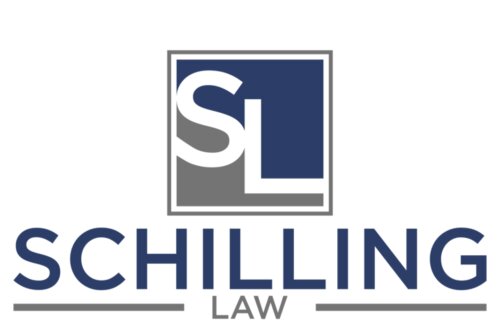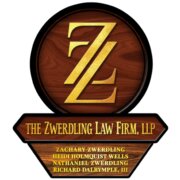Best Defamation Lawyers in Kansas
Share your needs with us, get contacted by law firms.
Free. Takes 2 min.
Or refine your search by selecting a city:
List of the best lawyers in Kansas, United States
About Defamation Law in Kansas, United States
Defamation law in Kansas is designed to protect individuals and organizations from false statements that can damage reputations. Defamation generally refers to the act of making false and harmful statements about someone to a third party. There are two main types of defamation: libel, which is written, and slander, which is spoken. Kansas law recognizes both forms and outlines the circumstances when someone can bring a lawsuit if they believe they have been defamed.
Why You May Need a Lawyer
Seeking legal assistance in defamation cases can be important for several reasons. You may need a lawyer if you have suffered reputational harm due to false statements or if you have been accused of making defamatory remarks. Common situations include harmful online posts, damaging news articles, false accusations at the workplace, and negative business reviews that are untrue. A defamation lawyer can help you understand your legal options, navigate the complexities of gathering evidence, respond appropriately to threats of legal action, or initiate a lawsuit if necessary.
Local Laws Overview
Kansas defamation law incorporates both state statutes and common law principles. Some key aspects include the following: - The plaintiff must prove that the statement was false, published or communicated to a third party, and caused harm. - Kansas law recognizes various defenses to defamation, including truth, opinion, and privilege (such as certain statements made in court). - Public figures and officials must also prove "actual malice," meaning the statement was made with knowledge of its falsity or reckless disregard for the truth. - Kansas sets limitations on the amount of time (statute of limitations) you have to bring a defamation lawsuit, generally within one year from the date the statement was made. - Damages may include both actual harm to reputation and, in some cases, punitive damages if malice is proven.
Frequently Asked Questions
What is considered defamation under Kansas law?
Defamation in Kansas is a false statement presented as fact that is communicated to someone other than the person defamed, resulting in harm to the subject’s reputation.
What is the difference between libel and slander?
Libel refers to written or published defamatory statements, while slander relates to spoken ones. Kansas law treats both forms as actionable, though some procedural differences may exist.
What do I need to prove to win a defamation lawsuit in Kansas?
You need to prove that the statement was false, made to a third party, caused you harm, and was not privileged. If you are a public figure, you must also prove actual malice.
What defenses might someone use against a defamation claim?
Common defenses include that the statement was true, it was an opinion rather than a statement of fact, or the statement was privileged under the law.
How long do I have to file a defamation lawsuit in Kansas?
Kansas law sets a one-year statute of limitations from the date the defamatory statement was made.
What are possible damages I can recover in a defamation case?
Damages can include actual financial losses, compensation for emotional distress, and sometimes punitive damages if malice is proven.
Can I sue for defamation over social media posts?
Yes. Defamatory statements made on social media or online platforms can be grounds for a lawsuit, provided they meet the legal requirements for defamation.
Is it defamation if someone expresses an opinion about me?
No. Kansas law generally protects opinions, as defamation must involve a false statement of fact, not a subjective opinion.
What happens if I am sued for defamation?
You should seek legal advice immediately. You may have defenses, and an attorney can help you navigate court procedures, respond to the complaint, and build your case.
Can employers be sued for defamation?
Yes, if an employer makes false statements about an employee to third parties (such as during references or internal communications), they may be held liable for defamation, subject to certain legal protections.
Additional Resources
If you need more information about defamation law in Kansas, consider contacting or researching the following organizations: - Kansas Judicial Branch - For accessing court forms and understanding court procedures. - Kansas Bar Association - Offers lawyer referral services and legal education. - Local legal aid organizations - Provide free or reduced-cost assistance to qualifying individuals. - Public libraries - Many have legal self-help materials and guides on Kansas civil law.
Next Steps
If you believe you have been defamed or are facing a defamation claim, consider taking these steps: 1. Document the statement: Save copies, screenshots, or records of any alleged defamatory communications. 2. Avoid confronting the other party directly, as this can complicate matters. 3. Consult with an experienced Kansas defamation attorney to discuss your situation, potential claims or defenses, and next steps. 4. Be mindful of the statute of limitations. Do not delay seeking legal advice, as waiting too long may prevent you from filing a claim. 5. Gather evidence of reputational harm or financial losses, as these will be important in any legal proceeding. By acting promptly and seeking qualified legal advice, you can better protect your rights and interests regarding defamation in Kansas.
Lawzana helps you find the best lawyers and law firms in Kansas through a curated and pre-screened list of qualified legal professionals. Our platform offers rankings and detailed profiles of attorneys and law firms, allowing you to compare based on practice areas, including Defamation, experience, and client feedback.
Each profile includes a description of the firm's areas of practice, client reviews, team members and partners, year of establishment, spoken languages, office locations, contact information, social media presence, and any published articles or resources. Most firms on our platform speak English and are experienced in both local and international legal matters.
Get a quote from top-rated law firms in Kansas, United States — quickly, securely, and without unnecessary hassle.
Disclaimer:
The information provided on this page is for general informational purposes only and does not constitute legal advice. While we strive to ensure the accuracy and relevance of the content, legal information may change over time, and interpretations of the law can vary. You should always consult with a qualified legal professional for advice specific to your situation.
We disclaim all liability for actions taken or not taken based on the content of this page. If you believe any information is incorrect or outdated, please contact us, and we will review and update it where appropriate.
Browse defamation law firms by city in Kansas
Refine your search by selecting a city.














